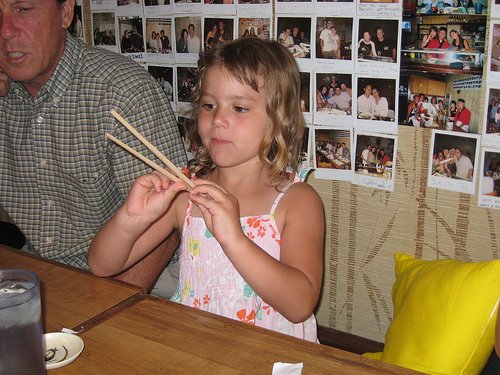One observation I’ve made about Japan in the 15+ years I’ve spent there is, they pay a little more attention to music-related culture than we generally do in the States. It’s quite common for Japanese kids to take piano lessons as they go through school, and my own kids went beyond this stage, becoming quite proficient at the clarinet and flute. Whereas I picked up virtually all my knowledge of the great composers of Europe from Peanuts comics (just 153 days til Beethoven’s birthday!), most Japanese kids I’ve seen know Bach from Beethoven from Brahmas. One of our favorite TV shows each week was called “The Titleless Concert” which aired on Sunday mornings. The host was Kentaro Haneda, a kindly old conductor whose mission was to bring classical music to people in a form that everyone could enjoy — kind of a Carl Sagan of the concerthall. Maestro Haneda was also a composer who, among many other achievements, wrote virtually all the music for the Macross animated series and movie. Sadly, he passed away last month due to liver cancer. He will be missed by many.
Coming to Japan and teaching English as a second language is in itself quite an education, and when a gaijin takes the plunge and comes to Japan to teach he will learn many things. First of all, you learn that you speak too fast for people here to understand you, no matter how slowly you think you’re speaking, and by the time you’ve learned to speak more clearly, your friends back home will mock you for talking funny. Your perception of English starts to change, too, as you learn to call a kerosene heater a “stove” and a cheerleader a “cheer girl.” You also learn odd words that you never thought existed, which are very much a part of the lives of your students, so you need to learn them if you’re going to be effective as a teacher. One such word for me was “bukatsu” (boo-KAH-tsoo), which means “club activities,” i.e. meeting with your club for an hour or two after school. The concept of clubs is much more important to a group-oriented place like Japan, and whether a certain person chooses to join the kendo club or the track team or brass band or the ping pong club (or the SOS Brigade) is an important choice, a “decision point” (just like in a dating-sim game) that could play a big part in that individual’s personal happiness in the future. Clubs play an especially big role in junior high school, when teachers require students to pick a club and will force them to join one of they can’t decide (my wife was made to join the volleyball club against her will). There’s a little more leeway in high school, but most students still join a club — the stigma of kitaku-bu” or “going home club (what students who refuse to join a club are called) is pretty significant (since by going home when everyone else is in their club, you are — gasp! — an outsider).
I’m enjoying my time here in San Diego, having my home country around me for a change. On Saturday I took my Miata out to the desert to remind myself what much of California is like, which was a lot of fun, at least until the temperature passed 110 degrees or so. Right now the poor J-List staff is enduring the tail end of Japan’s dreary rainy season, which stretches from mid-June to mid-July, when most every day sees grey skies and rain that falls in large plum-sized droplets (the word for rainy season, tsuyu, is written with kanji that mean “plum rain” (梅雨)). There’s another reason I’m not sorry to be ouside of Japan: there was a magnitude 6.8 earthquake today, centered in Niigata, right next to our home prefecture of Gunma. Several buildings were flattened and two elderly women were killed by the quake, sadly.
















